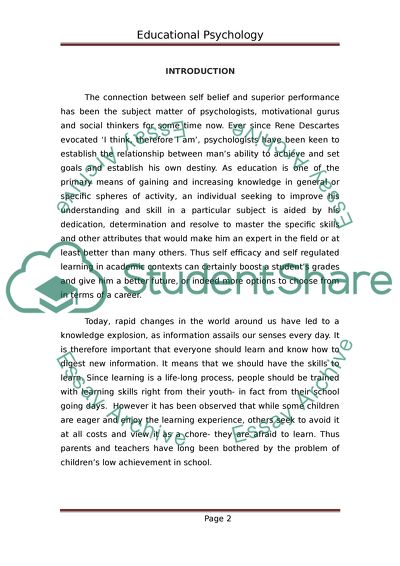Cite this document
(“Self-efficacy and Self-regulated Learning in Academy Article”, n.d.)
Retrieved from https://studentshare.org/education/1394307-self-efficacy-and-self-regulated-learning-in-academy
Retrieved from https://studentshare.org/education/1394307-self-efficacy-and-self-regulated-learning-in-academy
(Self-Efficacy and Self-Regulated Learning in Academy Article)
https://studentshare.org/education/1394307-self-efficacy-and-self-regulated-learning-in-academy.
https://studentshare.org/education/1394307-self-efficacy-and-self-regulated-learning-in-academy.
“Self-Efficacy and Self-Regulated Learning in Academy Article”, n.d. https://studentshare.org/education/1394307-self-efficacy-and-self-regulated-learning-in-academy.


